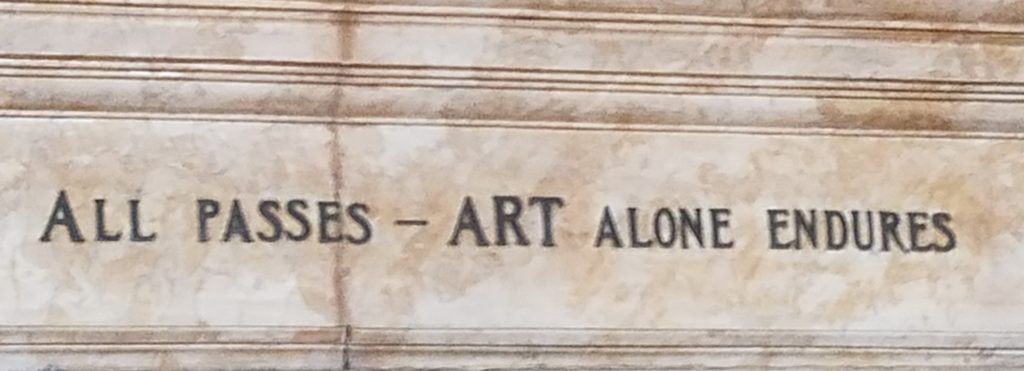“No mind is thoroughly well organized that is deficient in a sense of humor.” Samuel Taylor Coleridge
Throughout the month of October, we’re revisiting some of the staple issues of Choral Ethics. I’ve written a BUNCH about each of these subjects during the last few years. While most of us now rehearse and perform in a much different way, these issues remain at the center of Choral Ethics even now. Today we will speak of Auditions.
Our auditions this year do NOT look the same as in years past; we may not even have had auditions. When we are able to have auditions again, how will yours look? Will you be using skills you’ve been forced to develop during the Pandemic? Or will you be going back to your “tried and true” ways of handling auditions? Perhaps this is the time to scrap the old ways and look to new ways. I have some audition behavior suggestions from past blogs, with an eye to Choral Ethics to help start you thinking. And as we rethink our ways of doing things, there are several behaviors we could change that might be the beginning of a new day for us, and for our organizations.
We create our own distinctive culture whether we are aware of it or not. We hold auditions or open rehearsals every year, then are not welcoming to the singers we say we wanted. We play favorites. We allow a select group (you could say a clique) lead the organization, keeping us either mired in the past or grabbing onto any new trend or repertoire that comes along. Or we don’t follow through. We may not think these behaviors affect our chorus, but I can assure you, they do.
One of the biggest problems with auditions is the lack of an audition plan, or the perception of the lack of plan by those auditioning. If singers who audition for you don’t understand your plan, they will believe you are not being fair when you are just sticking to your plan. And if they believe you are not fair, all sorts of misunderstandings occur. Taking time to be clear about expectations can make a world of difference in auditionees’ perception of you, your ensemble and organization.
Another Choral Ethics issue is how you, the auditioneer, behave during the audition. Do you act bored, or interested? If you are forced to hold auditions no matter what, how do you present yourself? Do your auditionees feel they have a chance of making it by your behavior? You may not need extra sopranos now, but you may down the line. If you have ticked off enough singers in previous auditions by your attitude, you may be sure they have told everyone.
I mentioned being clear with expectations earlier in this blog. It’s important to convey your expectations to those who audition for you but just as important to be clear about what they should expect from YOU. After auditions, if you only contact those who make it, please be clear that is what you do. I’ve gotten many, many emails from folks who found out via a press release they did NOT get a position, a perfect example of ticking people off for no good reason.
Early in my career, auditioning for community chorus positions, I learned the importance of following through. Those who were timely and let you know where they were in the auditioning process, were groups with whom I had good feelings about, no matter what happened. And those who “forgot” to contact me are now not doing that well–years of treating folks with no respect will take its toll. Believe it or not, I am grateful for that lesson learned!
As a result, I can’t stand promising to do something and not following through. If I say I will call you–I will. If I say I will email or text you by a certain time–I will. I try to respect people’s time and feelings by always doing what I say I will, when I say I will. It makes
a world of difference in how people perceive me and my organization.
Until next week, be well and be safe!
I am taking my Choral Ethics Blogs to my chamber choir’s Facebook page for the foreseeable future. Please join me there this morning!
https://www.facebook.com/themidwestmotetsociety



Leave a Reply
You must be logged in to post a comment.